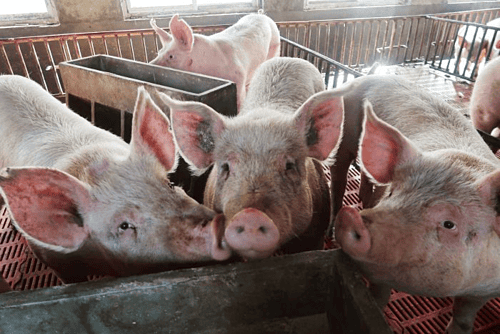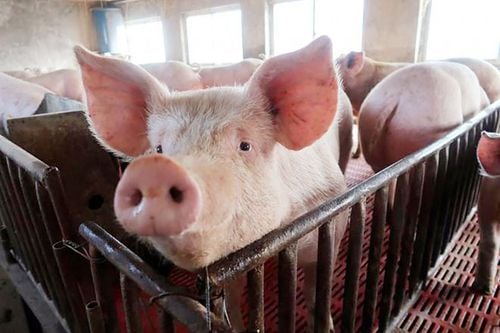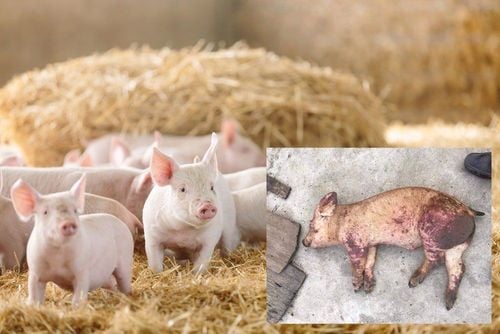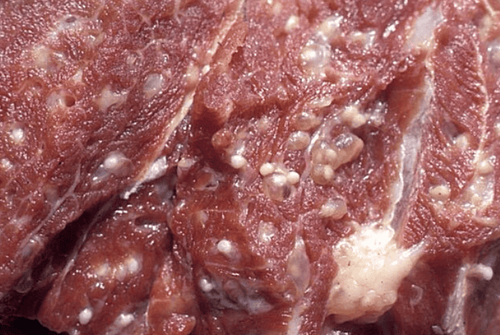This is an automatically translated article.
The article was professionally consulted by Specialist Doctor I Tran Quoc Vinh - Emergency Doctor - Department of Resuscitation - Emergency - Vinmec Nha Trang International General Hospital.African swine fever has appeared in 20 countries around the world. This is considered a dangerous disease, spreading quickly, greatly affecting the livestock industry, there is currently no vaccine to prevent and no treatment.
1. African swine fever broke out in many places
The virus that causes African swine fever is a virus that causes hemorrhagic fever. Pigs once infected with this virus, the mortality rate is 100%. Currently, there is no vaccine against African swine fever. Fortunately, this virus does not infect humans. However, the disease caused a lot of damage to the livestock industry if there are no measures to control it.According to statistics of the World Organization for Animal Health (OIE), from 2017 to February 18, 2019, there were 20 countries in the world reporting the occurrence of African swine fever, of which the The hardest hit is China, which is also the world's largest producer and consumer of pork.
Pork is currently the main source of meat, consumed a lot in Asian countries. Therefore, it is almost certain that the swine fever virus will enter other countries in the region and spread rapidly.
In Vietnam, on February 19, 2019, the Sub-Department of Animal Health (Ministry of Agriculture and Rural Development) announced the detection of the first outbreak of African swine fever in Hung Yen and Thai Binh provinces. On March 5, 2019, information from the authorities said that 202 households in 7 provinces and cities had outbreaks of the disease, of which 4,200 infected pigs were culled.
As of March 29, 2019, African swine fever has spread to 23 provinces in Vietnam, including: Hai Phong, Thanh Hoa, Hanoi, Ha Nam, Hai Duong, Thai Binh, Hung Yen, Hoa Binh, Dien Bien, Thai Nguyen, Ninh Binh, Nam Dinh, Quang Ninh, Bac Kan, Son La, Nghe An, Lang Son, Bac Ninh, Thua Thien - Hue, Lai Chau, Bac Giang, Vinh Phuc and Quang Tri.
2. Where did African swine fever come from?

1957: African swine fever was first detected and reported in Europe.
2007: Epidemic was detected in Armenia.
2008: Azerbaijan started to have infected pigs.
From the end of 2017 - 2018, there were 12 countries reported to have African swine fever, including: China, Russian Federation, Czechoslovakia, Hungary, Latvia, Moldova, Finland, Romania, South Africa, Ukraine and Zambia.
In August 2018: African swine fever first appeared in China. Millions of infected pigs have been culled in this country.
In Vietnam, Hung Yen province was the first place where the outbreak was detected.
Up to now, the data reported by the Ministry of Agriculture shows that African swine fever has been present in 2,296 communes, 204 districts of 29 provinces, with the total number of pigs infected and culled up to more than 1.2. million heads, accounting for more than 4% of the country's total pig herd.
3. How dangerous is African swine fever?
Unlike swine flu, African swine fever has no direct effects on human health. Swine cholera cannot currently cause disease in humans, but can be transmitted to flies, mosquitoes, rats, cats, and poultry such as chickens and ducks. Pigs with cholera can get other dangerous diseases, such as blue ear, flu, typhoid fever... These diseases are the real danger to humans, because of their ability to disrupt the system. digestion, especially when eating blood vessels, eating infected pork but not thoroughly cooked.When pigs have blue ear disease, the streptococcus causing the disease resides in the mouth. People with scratches or wounds, when in contact with infected pigs, will be infected with bacteria. When infected, patients often show signs of high fever, headache, nausea, bleeding in some places on the body. In some more serious cases, there may be symptoms of gastrointestinal toxicity, even more severe, meningitis.
Up to the present time, African swine fever has not had a preventive vaccine as well as a specific treatment. Therefore, some measures can be taken to help prevent ASF such as:
At livestock establishments and wholesale points: regularly clean and disinfect transport vehicles, livestock tools and slaughter pigs with lime or chemicals. For people involved in animal husbandry: clean personal hygiene before and after contact with pigs. Immediately isolate suspected sick pigs or sick pigs. Avoid spreading pathogens to the outside by killing vectors that transmit diseases such as mosquitoes, flies, ... because they are likely to be the source of pathogens from one place to another. Do not buy or sell pigs or pork without determining the origin. Consumers should buy pork with clear origin at reputable addresses. Ensure hygienic food, eat cooked and drink boiling.

Please dial HOTLINE for more information or register for an appointment HERE. Download MyVinmec app to make appointments faster and to manage your bookings easily.
Articles compiled from the source: Wikipedia













